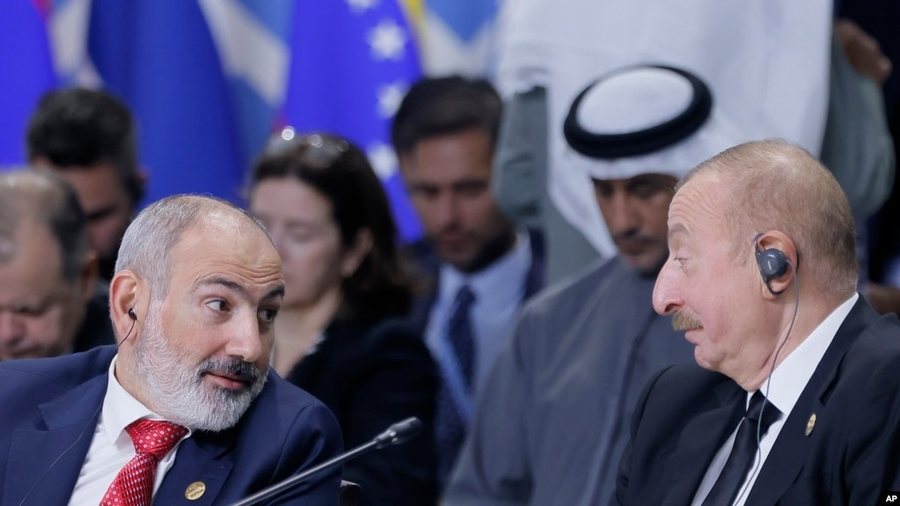
Armenia and Azerbaijan - which have fought each other several times since the late 1980s - have finalized the text of a long-awaited peace agreement aimed at establishing formal relations between them.
This is a big step towards ending hostilities between these two countries.
Armenia's Foreign Ministry confirmed on March 13 that Yerevan has accepted Azerbaijan's proposals on the two remaining uncoordinated articles of the agreement, effectively concluding negotiations on the text.
It has proposed consultations with Azerbaijan on the date and place of signing this agreement.
Armenian Prime Minister Nikol Pashinyan told reporters in Yerevan shortly after the ministry's announcement that the draft peace agreement is a compromise and that his country is ready to begin consultations on the timing of the agreement's signing.
"They do not keep any secrets from our society in that text, which, in fact, was published separately article by article. I do not think it can be said that society is not familiar with the content," Pashinyan said, emphasizing that Armenia and Azerbaijan will not deploy foreign forces along the border after signing the agreement.
Azerbaijani Foreign Minister Ceyhun Bayramov told reporters on March 13 that "the negotiation process on the text of the peace agreement has officially ended," adding that "the last two outstanding clauses have been addressed, and Armenia has accepted Azerbaijan's proposals."
Despite this achievement, Azerbaijan insists that the agreement cannot be signed until Armenia revises its Constitution and legal framework to remove any reference to territorial claims over regions within Azerbaijan, referring primarily to Nagorno-Karabakh.
"This is a necessary prerequisite for signing the peace agreement," Bayramov said.
Years of Talks
The latest developments come after years of talks for a lasting peace agreement.
Nagorno-Karabakh, with a large Armenian population, had been under the control of ethnic Armenian authorities since the early 1990s, following a devastating war between the two neighbors following the collapse of the Soviet Union.
However, after a brief but intense Azerbaijani military offensive in September 2023, the separatist leadership surrendered and the region, now officially called Karabakh, was reintegrated into Azerbaijan.
The war led to the mass exodus of more than 100,000 ethnic Armenians from this region, ending decades of separatist rule.
After the recent war over the region, Armenia and Azerbaijan resumed talks on a peace agreement to formally recognize each other's territorial integrity and establish diplomatic relations.
One of the main obstacles in the talks has been Armenia's legal position regarding the status of Nagorno-Karabakh as Azerbaijani territory.
Baku has long argued that Armenia's Constitution includes implicit territorial claims over Nagorno-Karabakh, and Azerbaijani officials insist this must be changed before the agreement can be signed. /REL (A2 Televizion)











